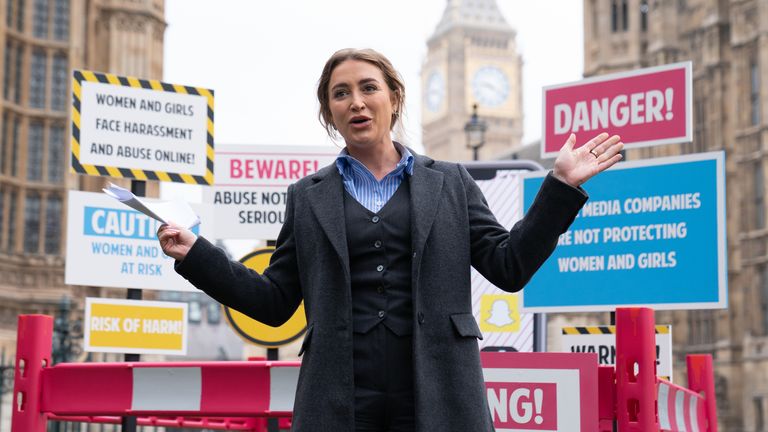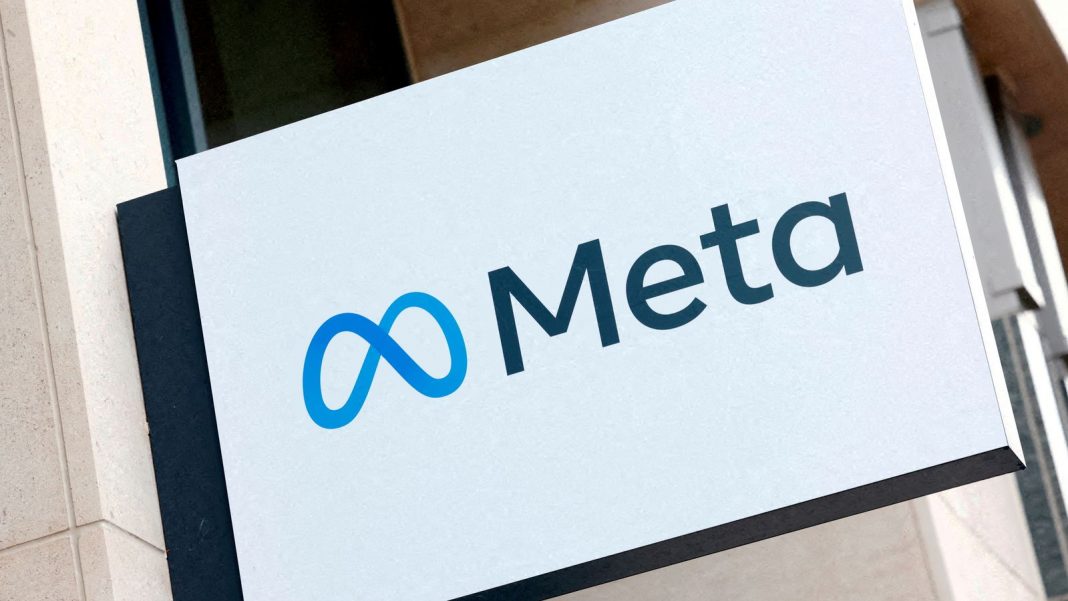Meta’s plans to introduce end-to-end encryption to Facebook Messenger and Instagram will “massively reduce” authorities’ ability to protect children from online abuse, a boss at the National Crime Agency (NCA) has said.
The firm already uses the tech on WhatsApp, meaning content cannot be seen by anyone outside the chat.
It has been one of the points of contention around the government’s Online Safety Bill, which cleared its last parliamentary hurdle after numerous delays on Tuesday.
Braverman wades into net zero row – politics latest
Under the legislation, regulator Ofcom could have the power to force platforms to scan messages for abusive or dangerous content – something the platforms argue would undermine user privacy.
WhatsApp and Signal are among the platforms that have threatened to pull out of the UK if the measure is used.
Meta is planning to bring encryption to Facebook Messenger and Instagram chats later this year, saying the “overwhelming majority” of Britons rely on the tech “to keep them safe from hackers, fraudsters, and criminals”.
Campaign group Index on Censorship also defended the plans, describing the hostility as “misguided”.
But the NCA urged Meta not to allow the rollout to impact the work of law enforcement.
James Babbage, director of general threats, said: “We’re not asking for new or additional law enforcement access.
“We simply ask Meta retains the ability to keep working with us to identify and help prevent abuse.
“This collaboration remains absolutely vital.”
Read more:
Everything you need to know about the Online Safety Bill
Why Apple is taking on Braverman’s new-look surveillance law
Please use Chrome browser for a more accessible video player

2:11
Online victims write to tech bosses
Meta defends ‘robust’ safety policies
Meta has insisted it has “robust safety measures” to prevent and detect abuse while maintaining security, including restricting people over 19 from messaging teenagers who don’t follow them.
A statement added: “As we roll out end-to-end encryption, we expect to continue providing more reports to law enforcement than our peers due to our industry-leading work on keeping people safe.”
While WhatsApp’s UK user base exceeds that of Instagram’s, the latter attracts a younger user base.
NSPCC chief executive Sir Peter Wanless has warned a known tactic of offenders is to target victims on open platforms and then move to an encrypted one, where abuse takes place.
Please use Chrome browser for a more accessible video player

1:06
Love Island star: ‘My DMs are scary’
Braverman attacks Meta’s stance
The NCA’s intervention comes after the home secretary wrote to Meta boss Mark Zuckerberg about his plans.
Suella Braverman expressed her concerns back in July, and has now accused his company of not providing assurances “that they will keep their platforms safe from sickening abusers”.
She said while the government supports the use of “strong encryption”, online child sexual abuse is taking place at “prolific levels” and companies “must develop appropriate safeguards”.
Her Labour counterpart Yvette Cooper said delays to the Online Safety Bill, which has drawn the ire of Tory MPs and tech giants alike, had left more children at risk.
But she also called on Meta not to turn its back on the issue, saying it had a “responsibility to use its technology and expertise to find new ways of keeping children safe”.







